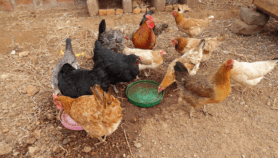Send to a friend
The details you provide on this page will not be used to send unsolicited email, and will not be sold to a 3rd party. See privacy policy.
Manufacturing biopesticides in East Africa could alleviate the region’s malaria burden while promoting economic development, says Bob W. Bell Jr. in this article in Business Daily Africa.
He argues that collaboration among East African nations could allow them to dominate the world market for pyrethrum — a non-toxic, organic pesticide with no history of insect resistance, that can be used to treat bednets.
By protecting and promoting the use of pyrethrum for malaria control, the region could reduce malaria outbreaks while improving technological capability and encouraging innovation in the pharmaceutical sector.
Public-private partnerships such as that between Japanese chemical company Sumitomo and the World Health Organization in Tanzania provide a good starting point, but policies are needed to ensure that development lasts beyond the lifetime of any single project.
Bell Jr. argues that new funding allocated to increasing the use of bednets would stimulate growth of regional manufacturers.
He calls for a concerted effort from key stakeholders including governments, the private sector, researchers and donors to help transfer technology and support manufacture of pyrethrum-treated bednets in East Africa.
Link to full article in Business Daily Africa












